Winston Churchill and Islam—Part Six
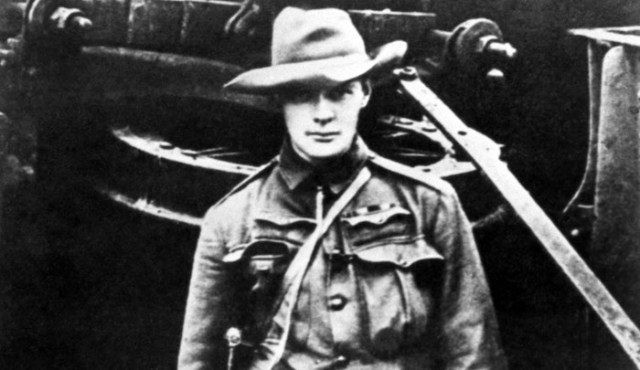
“While the Mad Fakir was rousing Swat and Buner, this powerful priest incited the Mohmands”.[1] The Mohmand were also a Pashtun tribe, against whom the British had waged war on and off since 1851, but the main operations began between 1897–1898.
Though he was known to be a physical coward, his sanctity and the fact that he was their own particular holy man, not less than his eloquence, powerfully moved this savage tribe. A Jehad [Jihad] was proclaimed. How long should Islam be insulted? How long should its followers lurk in barren lands of the North? He urged them to rise and join in the destruction of the while invaders. Those who fell should become saints; those who lived would be rich, for these Kafirs [unbelievers, i.e. non-Muslims] had money and many other things besides, for which a true believer might find a use. The combined allurements of plunder and paradise proved irresistible.[2]
In his memoir, My Early Life, Churchill explains the military importance of the Malakand Pass:
For three years the British had held the summit of the Malakand Pass and thus had maintained the road from the Swat Valley and across the Swat River by many other valleys to Chitral. Chitral was then supposed to be of great military importance. It has always seemed to get along quite happily since, but no doubt it was very important then. The tribesmen of the Swat Valley, irritated by the presence of the troops in what they had for generations regarded as their own country, had suddenly burst out in a fury, attributed by the Government [of India] to religion, but easily explicable on quite ordinary grounds.[3]
The Government of India was correct that it was, at least partly, religion — Islam — that must be blamed. Islam demanded that once a land had passed into Muslim hands, it must forever remain Muslim. If invaded by non-Muslims, it must be at all costs be liberated in the name of Islam.
Churchill rode out with Sir Bindon Blood’s Malakand Field Force on 5 September 1897. Blood’s force was made up of two brigades of British and Indian regiments, their aim was to tackle the unruly Mohmand tribes. Churchill, in his dispatch to The Daily Telegraph which was published on 7 October 1897, notes the courage of the Pashtuns, “Their swordsmanship, neglecting guards, concerns itself only with cuts and, careless of what injury they may receive, they devote themselves to the destruction of their opponents”. However, he is less charitable towards the mullahs, who were responsible for the instigating the violence in the first place, and is aghast by their habit of trading their women to buy their rifles, “Their religion [Islam] is the most miserable fanaticism, in which cruelty, credulity, and immorality are equally represented. Their holy men — the Mullahs — prize as their chief privilege a sort of droit de seigneur. It is impossible to imagine a lower type of beings or a more dreadful state of barbarism”.[4]
On 2 October 1897, Churchill wrote to his mother: “The danger & difficulty of attacking these active fierce hill men is extreme….It is a war without quarter. They kill and mutilate everyone they catch and we do not hesitate to finish their wounded off…”
In a dispatch to the Daily Telegraph that was published on 6 November 1897, Churchill said: “Civilisation is face to face with militant Mohammedanism [Islam].”[5] In another dispatch, published 9 November 1897, he stated: “Their intelligence only enables them to be more cruel, more dangerous, more destructive than the wild beasts. Their religion [Islam] — fanatic though they are — is only respected when it incites to bloodshed and murder.”
One incident must, however, be recorded. The line of march on the 22nd lay past the village Desemdullah or Bibot, in which the severe fighting of the night of the 16th had taken place. In company with several officers, I rode to look again at the ill-fated spot. It will be remembered that the bodies of Mohammedan native soldiers killed in the fighting had been buried there. The sight which was presented to our gaze was horrible and revolting. The remains had been disinterred and mutilated. Remembering that a morning journal is read to a large extent at the breakfast table, I do not intend to describe the condition in which these poor fragments of humanity were found.
I must, however, invite the reader to consider the degradation of mind and body which can alone inspire so foul an act. These tribesmen are among the most miserable and brutal creatures of the earth. Their intelligence only enables them to be more cruel, more dangerous, more destructive than the wild beasts. Their religion [Islam] — fanatic though they are — is only respected when it incites to bloodshed and murder. Their habits are filthy; their morals cannot be alluded to. With every feeling for respect for that wide sentiment of human sympathy which characterizes a Christian civilization, I find it impossible to come to any other conclusion than that, in proportion as these valleys are purged from the pernicious vermin that infest them, so will the happiness of humanity be increased, and the progress of mankind accelerated.”[6]
To be continued.
AUTHOR
RELATED ARTICLES:
Winston Churchill and Islam—Part One
Winston Churchill and Islam—Part Two
Winston Churchill and Islam—Part Three
Winston Churchill and Islam—Part Four
Winston Churchill and Islam—Part Five
EDITORS NOTE: This Jihad Watch column is republished with permission. ©All rights reserved.
SOURCES:
[1] MFF, p.99.
[4] Ed. Frederick Woods, Young Winston’s Wars, The Original Despatches of Winston S. Churchill, London: Sphere Books, 1972, p. 42.
[5] Ed. Frederick Woods, Young Winston’s Wars, The Original Despatches of Winston S. Churchill, p.67.
[6] Ed. Frederick Woods, Young Winston’s Wars, The Original Despatches of Winston S. Churchill, pp. 76-77.
BIBLIOGRAPHY
WINSTON SPENCER CHURCHILL, The River War. An Historical Account of the Reconquest of the Soudan. Ed. Col. F. Rhodes, illustrated by Angus McNeill, 2 vols. (London: Longmans, Green, and Co., 1899).
The unabridged edition in Two Volumes of the original version of 1899 (see above). Edited by James W. Muller, With a New Foreword by Churchill’s Daughter Mary Soames. South Bend, Indiana: St. Augustine’s Press in association with the International Churchill Society. 2020. Vol.1 pp.430. Vol.2 pp.844.
Contents of Volume 1: Foreword: Mary Soames; The Making of This Book; Abbreviations; Editor’s Introduction; New Bibliography; A Note on the Text; Half Title Page; By the Same Author; Frontispiece, Title Page; Inscription; Preface; List of Principal Works Consulted; Government Publications; Illustrations in the First Volume; Maps and Plans in the First Volume.
Contents of Volume 2: Half Title Page; Frontispiece; Title Page; Illustrations in the Second Volume; Maps and Plans in Second Volume; Epilogue: Churchill’s Introduction to the 1933 Edition; Appendices A, B, C, D, E. Appendices I, II, III, IV, V, VI, VII, VIII, IX, X, XI. Index.
Other works by Churchill referred to in this survey are:
Winston S. Churchill, The Story of the Malakand Field Force: An Episode of Frontier War (London: Longmans, Green, and Co., 1898), referred to as MFF.
Winston S. Churchill, My African Journey (London: Hodder and Stroughton, 1908), referred to as MAJ.
Winston S. Churchill, My Early Life: A Roving Commission (London: Thornton Butterworth Limited, 1930), referred to as MEL.
Ed. Frederick Woods, Young Winston’s Wars, The Original Despatches of Winston S. Churchill, London: Sphere Books, 1972.
Ed. David Lough, Foreword by Randolph Churchill, My Darling Winston, The Letters Between Winston Churchill and His Mother. London: Pegasus Books, 2018.
Other works referred to include:
Andrew Roberts. Churchill. Walking with Destiny. Penguin Books: Penguin Random House UK, 2019. Select Bibliography, Index; 1105 pages.
Andrew Roberts. Eminent Churchillians. Phoenix: London, 1995.
Con Coughlin, Churchill’s First War. Young Winston and the Fight Against the Taliban, London: Pan Macmillan, 2013.
Randolph S. Churchill, Official Biography: Vol. I: Winston S. Churchill: Youth 1874-1900 1966.
Sir Bindon Blood, Four Score Years and Ten. Sir Bindon Blood’s Reminiscences, London: G. Bell and Sons Ltd., 1933.
William Manchester, The Last Lion: Winston-Spencer Churchill, Visions of Glory, 1874-1932. New York: A Dell Trade paperback, 1983.

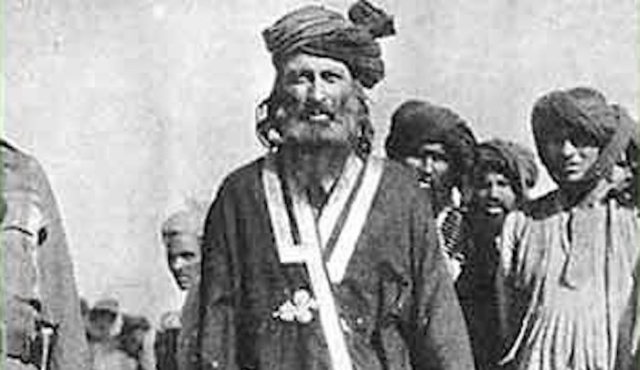
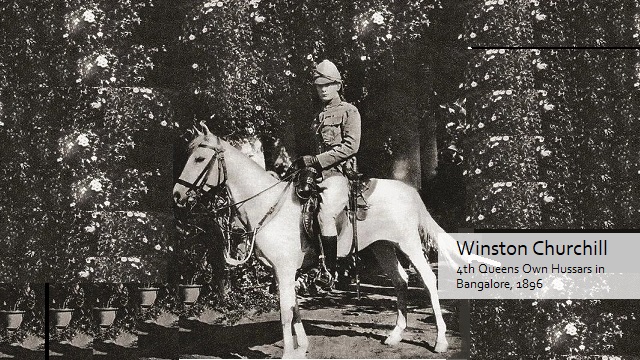
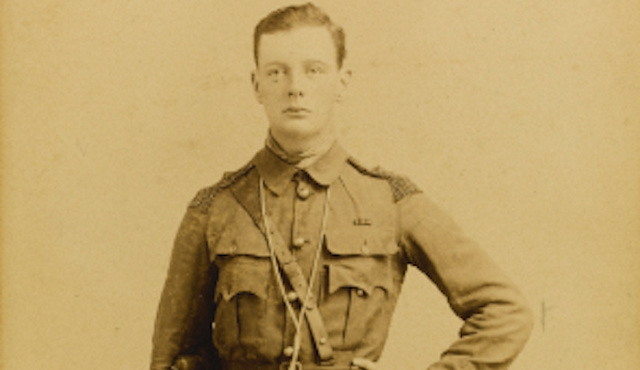
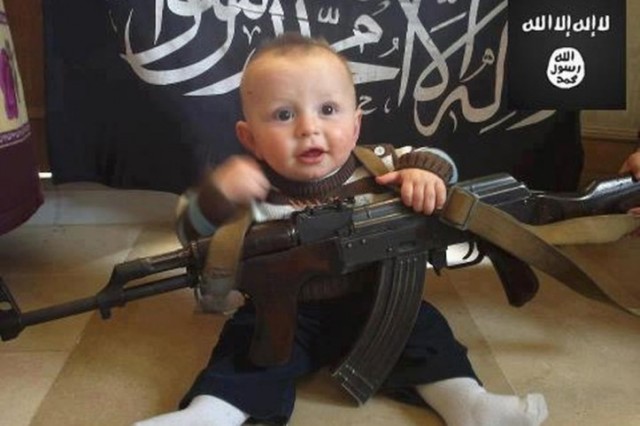
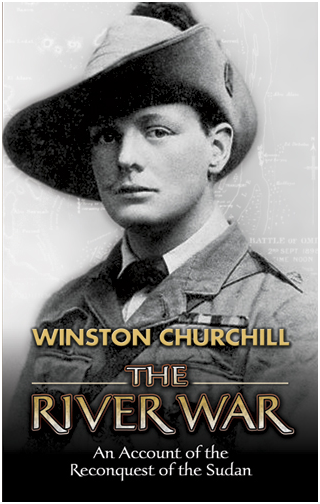 Manhattanite Dan Friedman sent an email to his list today with a famous quote on Islamic fanaticism from Sir Winston Churchill’s engrossing chronicle,
Manhattanite Dan Friedman sent an email to his list today with a famous quote on Islamic fanaticism from Sir Winston Churchill’s engrossing chronicle, 
